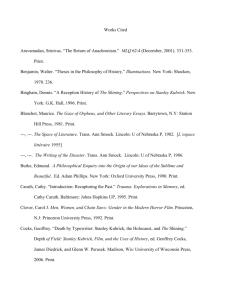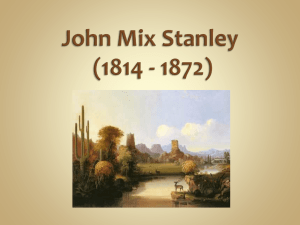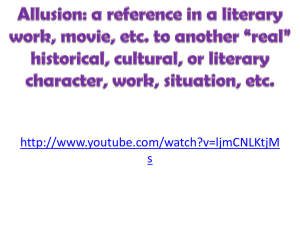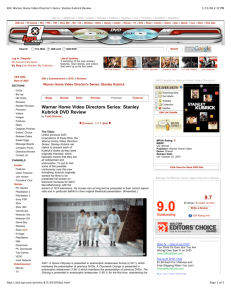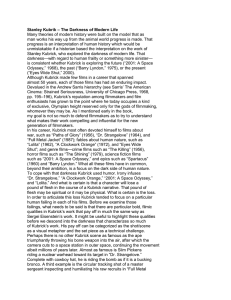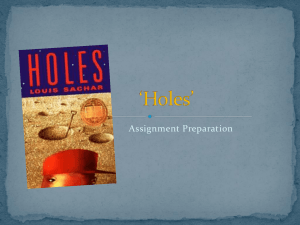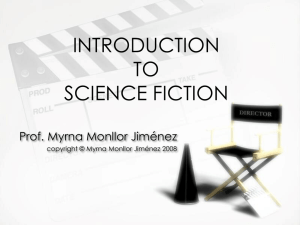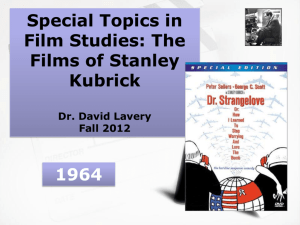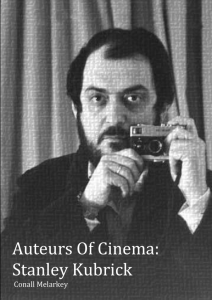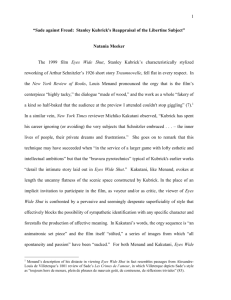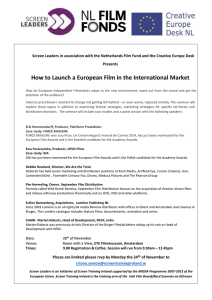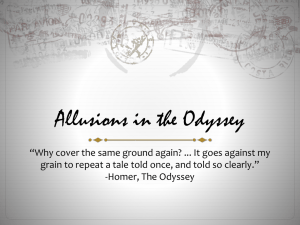2001: A Space Odyssey
advertisement
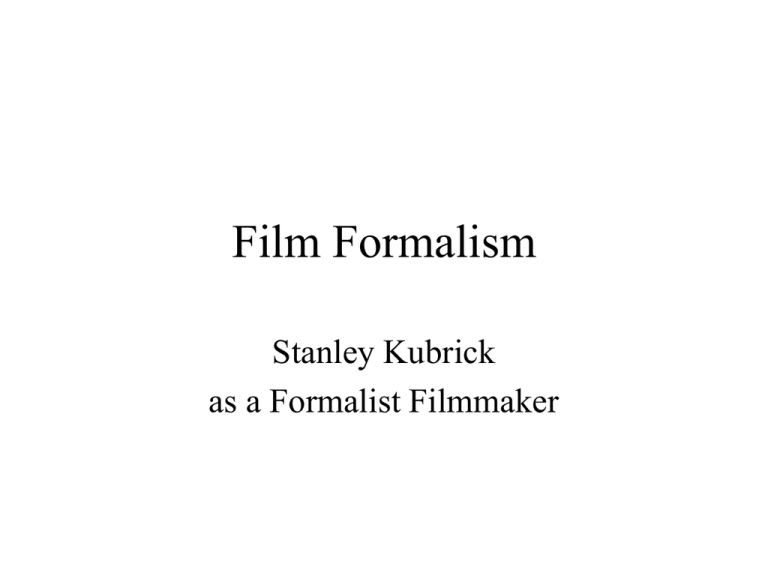
Film Formalism Stanley Kubrick as a Formalist Filmmaker Table of Contents 1) Stanley Kubrick 2) 2001: A Space Odyssey 3) Barry Lyndon Stanley Kubrick • Kubrick as Auteur (who stamps unmistakable personality and vision on his/her films) • Kubrick as formalist Stanley Kubrick • At the age of 16 his photo was published in the Look magazine. Employed as a photographer and contributed 600 photos to the magazine. • Formative years • Keen visual sense Stanley Kubrick • Kubrick’s first film • Self-financed short documentary, Day of the Fight (1951) • Documentary on prizefighters • Look magazine photojournalism = documentary film • Capturing mood and atmosphere - the primary aim of his documentary films Stanley Kubrick • Three documentary films (1951-2) • 13 feature films (1953-1999) • Fear and Desire (1953) - about four soldiers trapped behind the enemy line and their escape is sidetracked by a woman and an enemy general. Stanley Kubrick • Killer’s Kiss (1955) - a prizefighter intervenes when a girl is assaulted by her employer/lover. This incident brings the two together and the fighter is threatened to be killed. • The Killer (1956) getting out of prison, a man masterminds a race track heist but the scheme is complicated by various people. Stanley Kubrick • Paths of Glory (1957) the bureaucracy of the French army execute three of its soldiers on charges of cowardice. • Though the narrative and the theme are simple, Kubrick manages to create powerful images by frequently using telephoto lenses. • Spartacus (1960) Stanley Kubrick • Kubrick’s self-exile to England • Lolita (1962) - the first work of an auteur. Controversial motif and his camera captures the danger and allure of lust. Kubrick discovered in this film Peter Sellers. Stanley Kubrick • • • • • Highly aesthetic composition Eloquent photography Powerful acting Creative and masterful editing Thought-provoking themes Stanley Kubrick • Lolita (1962) - Literary film; Adaptation of Nobokov’s novel Stanley Kubrick • Dr. Strangelove: or how I learned to stop worrying and love the bomb (1964) - Satire on the Cold War and the nuclear crisis Stanley Kubrick • 2001: A Space Odyssey (1968) - SF film Stanley Kubrick • Clockwork Orange (1971) - Adaptation of Anthony Burgess’ novel; satire on violence (personal and public) Stanley Kubrick • Barry Lyndon (1974) - a history film or costume drama Stanley Kubrick • Shining (1980) - Horror film Stanley Kubrick • Full Metal Jacket (1987) - the training of Vietnam recruits and the corruption of the narrator in the war. • Eyes Wide Shut (1999) - 2001: A Space Odyssey • Made in 1968, a year after Bonnie and Clyde • Took two and a half year and cost $10.5 million. 2001: A Space Odyssey • Mythic vision of the relationship between man and machine • Philosophical contemplation 2001: A Space Odyssey • Audacious visual design and use of colours • Bold use of music, Richard Strauss’ Also Sprach Zaratustra 2001: A Space Odyssey • Very bold Associative cut (graphic match) • Ellipsis of several million years from the prehistoric age to 2001 2001: A Space Odyssey • David Lean’s Lawrence of Arabia (1962) • Associative cut - geographical jump from the headquarter of British Armies in Cairo to the middle of the Arabian desert 2001: A Space Odyssey • Simplified and geometrical set design and composition • Juxtaposition of Johan Strauss’ Blue Danube and the floating space station 2001: A Space Odyssey • Ridley Scott’s The Alien (1974) • Maze of corridors and cluttered lived-in space of the spacecraft, Nostromo 2001: A Space Odyssey • In Section II a monolith similar to the one which appeared in Section I is found. • In Section III a battle between astronauts and the super computer, HAL. • State of art composition and editing 2001: A Space Odyssey • Section IV: • The surviving astronaut’s hallucinatory trip through space and time 2001: A Space Odyssey • The astronaut arrives as an old man in a white bedroom furnished in Louis XVI style. • The final frame - his rebirth as embryonic StarChild. 2001: A Space Odyssey • Being enigmatic, mystical and sensuous, what is 2001: A Space Odyssey about? • It resists interpretation. • The film is ‘… essentially a nonverbal experience … It attempts to communicate more to the subconscious and the feelings than it does to the intellect.’ Stanley Kubrick Barry Lyndon • The film almost equal to 2001 in historical importance • Historical drama made in 1975 and based on William Thackeray’s novel in the 19th century Barry Lyndon • Expressively lit and photographed • Most sensuous photography • Photographed by John Alcott, (Clockwork Orange and Shining) Stanley Kubrick • Path of Glory (1957) (Anti-) war film
